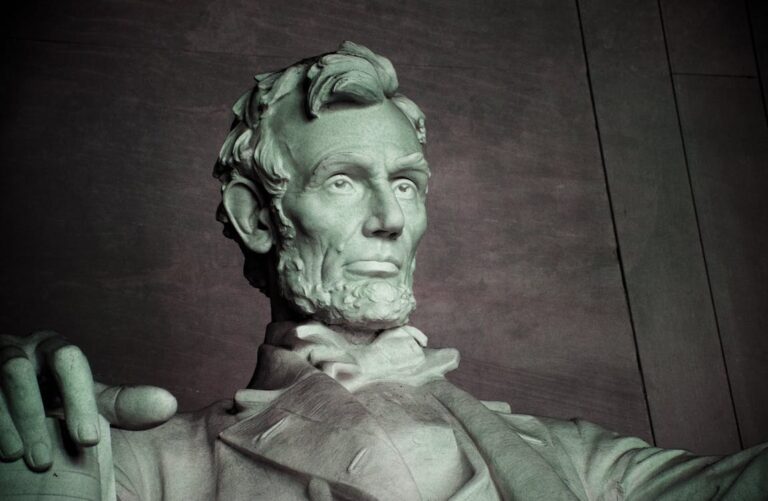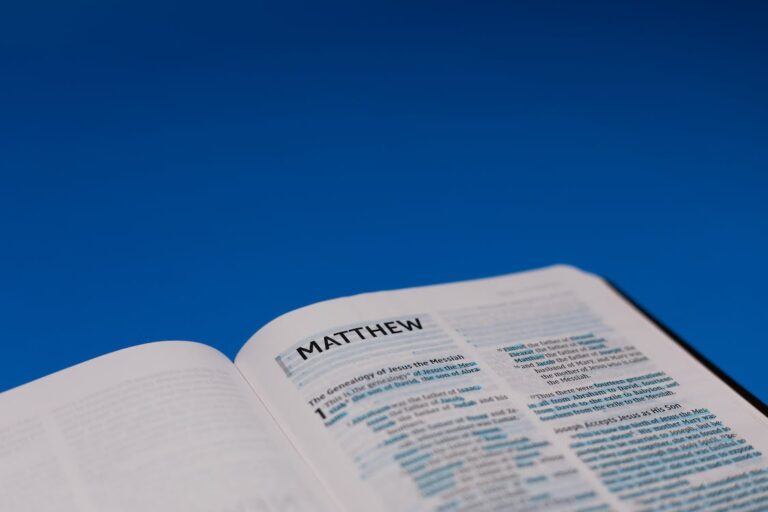Have you ever written a timeline from a spiritual perspective? Believers know that God is the author of their salvation and in this tremendous chapter we see eighty years of Moses’ life prior to the Exodus. A series of providential events occurred in the life of Moses which provide valuable lessons for all time.
Moses’ Family
Moses was a Levite; both his parents were Levities, and he would later perform priestly functions. Aaron was three years older (Exodus 7:7) and Miriam was possibly around thirteen years of age. Amram and Jochebed were Moses’ parents (Exodus 6:20) and were commended later in Hebrews 11:23. A cursory reading might suggest that his mother was reluctantly complying with the decree to cast her child into the Nile (Exodus 1:22). But if we read carefully, we note that she bravely weaned him for three months which was a risk in itself and to have kept him at home any longer would have potentially endangered many lives. The basket was daubed with bitumen and pitch, just like the Ark and maybe she had that in mind.
Jochebed exercised wisdom and faith simultaneously, a valuable lesson for us all. Some read extensively and can explain what they know at great length yet seldom exercise genuine faith. Some mistake faith for cockiness and do so in a foolish manner putting themselves and others at unnecessary risk. Genuine faith requires knowledge, belief, and action; hence Moses was placed on the riverbank, not in the River Nile. Similarly we wear seat belts when we drive though we pray for travelling mercies.
His sister was watching from a distance to know what would happen to him. This was most likely Miriam, and it was a well thought out plan. Her swift actions and constructive words demonstrate how well she was prepped by their mother. Undoubtedly this experience would strengthen her faith and she would be able to remind Moses of these events in later years.
Pharaoh’s Daughter
Have you ever thought who Pharaoh’s daughter was and marvelled at her gracious actions? Some would conclude it is a nice story and she had a strong mothering instinct. Nevertheless, she went against her father’s edict and paid for Moses to be nursed and became his foster-mother and named him. She was Egyptian and he was a Hebrew though she did everything within her power to preserve his life.
Pharaoh’s daughter was most likely Hatshepsut, daughter of Tuthmosis I. At one time she ruled Egypt and for some years she was co-regent with her stepson Tuthmosis III. In the Petrie Museum you can see the remains and bricks from her palace. In the Natural Science Museum in Bournemouth there is a relief of her and Tuthmosis III. It is noticeable that he tried to eradicate her from the records by defacing her image on some of the reliefs. Similarly, in the British Museum there is an Egyptian king list with four of the kings defaced. Like Nebuchadnezzar, Cyrus, and Artaxerxes, she was used to preserve God’s chosen people. Interestingly, the Pharaoh’s during the lifetime of Moses are incredibly well documented especially in Room 4 in the British Museum.
Moses Fully Grown
An ungracious evaluation of Moses earlier days might lead one to conclude that he was initially something of a hothead. He had to spend forty years cooling down being a faithful shepherd for God to refine his character. If we were both unfair and uncharitable, we could state that he killed a man one day and then got caught up in an argument the next day. Some would reprove Moses and say that he should have kept his nose out of trouble, but how greatly mistaken we would be!
An essential rule of Biblical interpretation is to let Scripture interpret Scripture. Hebrews 11:23-25 commends his faith. “By faith Moses, when he was born, was hidden three months by his parents, because they saw he was a beautiful child; and they were not afraid of the king’s command. By faith Moses, when he became of age, refused to be called the son of Pharaoh’s daughter, choosing rather to suffer affliction with the people of God than to enjoy the passing pleasures of sin, esteeming the reproach of Christ greater riches than the treasures in Egypt; for he looked to the reward.”
Through the world’s eyes Moses could have lived the ‘high life’. But Egypt speaks of the world and Moses forsook the wonders of Egypt with its materialism, powerful status and the ‘pleasures’ of sin. He was a man of godly fortitude and willing to count the cost. The believer must seek first the kingdom of God and all those things will be added unto them.
In Acts 7:20-29 Stephen made a famous speech before he was stoned to death which included the life of Moses. This gives us the godly perspective and enables us to see the events with more clarity. Moses was treated as a son of Pharaoh’s daughter and he was mighty in words and deeds. He might have been Pharaoh material and he could have been tempted to act as an ambassador and enjoy the best of both worlds. Are we tempted to compromise with apparent privileges in our lives?
The Character of Moses
The heart of Moses was moved by the oppression of his countryman. This was not merely a rash and reactive response since he was willing to put his own life and numerous privileges at risk. Yes, he took the law into his own hand though the law was corrupt. This is not to condone the taking of life. Nonetheless we must consider the consequences for Moses of being caught and for defending another Hebrew. The Egyptians would have called him a traitor and punished him accordingly.
The very next day we see the outworking of his character. The previous day he defended a fellow Hebrew and killed an Egyptian. The next day he sees a quarrel between his brethren and tries to resolve it. He could easily have walked on by since he was potentially in more than enough trouble if yesterday’s events were uncovered. Others would have lain low and tried not to tempt fate, though he bravely intervened. He endured the heartache of being misunderstood, by those he came to save just like Yeshua the Messiah.
Like our Lord he bore their insults and they refused the help of the very one sent to help and free them. The offending brother accused him with double insult. Who made you ‘prince’ and ‘judge’? In the natural Egyptian sense he was a ‘prince’, but he in effect was being accused of masquerading as a Hebrew. I suspect this was a cutting taunt at his ethnicity, upbringing, role and responsibilities and it most certainly would have hurt Moses.
Moses Flees to Midian
Notice this chapter started with the Levites and now Moses would encounter the priest of Midian. He is known as Reuel or Jethro. Jethro’s advice in Exodus 18 leads us to believe that he was probably a godly priest. The Midianites were descendants of Abraham and Keturah (Genesis 25:1-4). They settled in the gulf of Aqaba, in close proximity to Eilat, the southern most part of Israel. Just over a hundred years ago, Lawrence of Arabia took Aqaba liberating it from Turkish rule at the close of the Ottoman Empire.
Jethro was another person that God providentially brought into the life of Moses and it is worth considering how the Lord brings people at the right time and in the right place into our lives. Have you ever moved to a new area or had a change of circumstances and the Lord has brought people into your life at the perfect time? Be sure to think that through and thank the lord, but also consider how you can do the same for someone else.
Now imagine that you are Moses, and the seven daughters of Jethro are being driven away by the shepherds. Only recently you tried to defend a Hebrew and you killed an Egyptian and the following day you attempt to reconcile a dispute between two Hebrews, it did not go well, and you are forced to flee for your life. It would have been easy to have thought and acted as follows. “I am new here and this is really unjust, but no one is going to die today. They will get their water later and I could even give them a hand and act the gentleman. I would like to do more but this is not my fault.”
But Moses stood up against the shepherds and did not try to contextualise justice. We do not know how many shepherds there were, but he saved the daughters and watered their flocks. He did not ask for a free meal and he was kind and courageous like our Lord. Jethro noticed and gave him a place to live and his daughter Zipporah and they had a son, Gershom. God provided for their needs.
The closing verses of the chapter remind us that God is in control and working according to His timeline. Note four things. God heard their groaning. God remembered His covenant with Abraham, Isaac, and Jacob. God saw them and God knew. When you bring a matter before the Lord and pray to Him, remember this. God has heard you, remembers you, sees you and knows you.
Moses and Messiah
In Exodus 2 we can see how Moses’s life parallels that of Jesus the Messiah
Moses was from a priestly line. The Lord Jesus is our High Priest and intercedes for us.
Both Moses and Jesus had an unusual and humble birth-basket and a crib.
Both were not raised by their natural fathers. Moses was a Prince and Yeshua King of Kings.
In both accounts we hear little between their birth and adult years.
Both defended the oppressed, bring deliverance and are humble.
Both were willing to condescend from privileged positions to save others.
Moses went out of Egypt. So did Messiah.
Moses became a shepherd. Our Lord is the good shepherd and the chief shepherd of our souls.
Application
Maybe you are in the middle of your life and thinking “where I am going in this dead- end job or situation?” Someone says, “God is preparing you.” You might respond, “How exactly?” A more helpful response is to look at the biblical characters that have been given to us as godly examples (Romans 15:4; 1 Corinthians 10:11) and in this case the life of Moses to learn and apply valuable lessons.
In his first forty years Moses was raised in an Egyptian household by royalty and he would have received an education and been familiar in every way with their culture. This was the perfect training ground for when he would lead Israel forty years later. If you wish to learn a language well it is wise to go to that country and immerse yourself there. If you desire to be an anthropologist, live in a hut with tribespeople and learn their customs. God was preparing Moses for a remarkable ministry.
The second forty years saw a member of royalty becoming a shepherd. Even today in the Middle East shepherds are sometimes looked down upon. I once was responsible for looking after young refugees and saw them taunting one young lad who was previously a shepherd boy. How would shepherding possibly help Moses lead Israel? The real question is, how would that not help him lead Israel? Being acquainted with the land, wilderness, geography, navigation, topography, finding water and basic survival skills would be essential for the wilderness years following the Exodus.
Those were the first eighty years of the life of Moses and then his ministry started in earnest. Maybe you are eighty years of age or more. Some octogenarians preach regularly, many are prayer warriors, some help their families, other families and are active in the life of the congregation. They possess perspective and experience. I used to visit a chap well into his nineties who would dispense me with plenty of advice and he gave me some of his notes. There is always an important role to play in the Lord’s economy. Think of Abraham and Sarah, Zacharias and Elizabeth, Simeon, Anna, and others. There is no retirement in the Lord’s service.
So look back upon your life and please do not weigh and measure it in human terms, since how will that benefit you in the light of eternity? Consider the divine perspective and how the Lord has been your Ebenezer and has helped you thus far. Consider how Moses was an example for us and learn lessons from his life and ponder how the Lord orchestrated the people and events for His purposes. Remember to thank the Lord for who He is and what He has done and trust Him for all that is to come.



